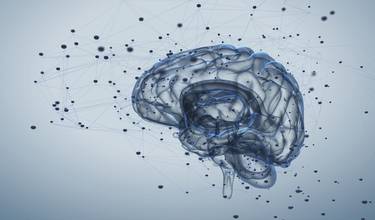What are diseases in the nervous system?
Our nervous system is a complex interaction between the brain, spinal cord and nerves. The system is controlled by different areas of the brain which oversees different functions of the body. Some nerves are responsible for the sense of smell or touch, while other nerves make fine-adjustments to the movement of the body.
Diseases in the nervous system can be divided into ‘central’ and ‘peripheral’ diseases depending on their influence on the central nervous system (brain and spinal cord), and whether they affect the peripheral nerves that supply our muscles, among other things. Depending on whether the disease is central or peripheral, the cause and symptoms of the disease will vary greatly. Common to the diseases in the nervous system, however, is that the nerves’ ability to redistribute signals is reduced or lost completely. This results in a loss of the normal function of the structures that are supplied by the nerves.
What are the symptoms of diseases in the nervous system?
Diseases in the nervous system can manifest themselves in various ways, depending on how many nerves are affected by the disease, and which functions these nerves oversee. In brain diseases, the symptoms can come in the form of speech impediments, dementia, blindness, dizziness, gait disorders and much more. If the peripheral nerves to a muscle lose their function, it will paralyse the affected muscle, but if it is central nerve paths in the spinal cord, which supplies the peripheral nerve to the muscle, it will cause spastic reflexes in this muscle. Therefore, it is not possible to list a number of recurrent symptoms for all the diseases in the nervous system.
What is the cause of diseases in the nervous system?
Diseases in the central nervous system can be due to a blood clot in the brain, a brain haemorrhage or a brain tumour that is putting pressure on a specific brain area. Moreover, biological changes, such as protein accumulation, can change how a brain area functions. Diseases in the peripheral nervous system can be due to infection, inflammation or trauma, which affects the nerves’ ability to send signals to and from the central nervous system.
Parkinson’s disease is a condition that affects the body’s ability to move. Here, the brain has difficulties controlling movements intentionally, and this causes tremors and slow movements. The reason for this is a lack of a certain signalling substance in a specific area in the central nervous system, which is part of a complex system in charge of delivering the necessary information about muscle movement.
Another disease, which is caused by an accumulation of protein in the brain, is Alzheimer’s. Alzheimer’s is a dementia disease characterised by reduced memory capacity. The protein blocks the communication between the nerve cells, thereby reducing the function of the brain area – most frequently affecting memory. For this reason, it gradually becomes more difficult to perform everyday tasks and to remember new events. In the case of an injury in the spinal cord, i.e. due to trauma, paralysis in the arms or legs is very frequent.
Amyotrophic Lateral Sclerosis (ALS) is a disease where the nerves do not receive sufficient amounts of information. Here, the nerves, responsible for supplying the muscles, slowly begin to deteriorate. The muscles, which do not receive any signals, begin to shrink, and the body weakens over time.
What are the treatments for diseases in the nervous system?
Contrary to the other cells in the body, nerve cells cannot regenerate or repair themselves, which means that damage to the nervous system is chronic. It is possible to regain an improved function through intense rehabilitation, but it is not possible to achieve the same level of function as before the disease in the nervous system began.








